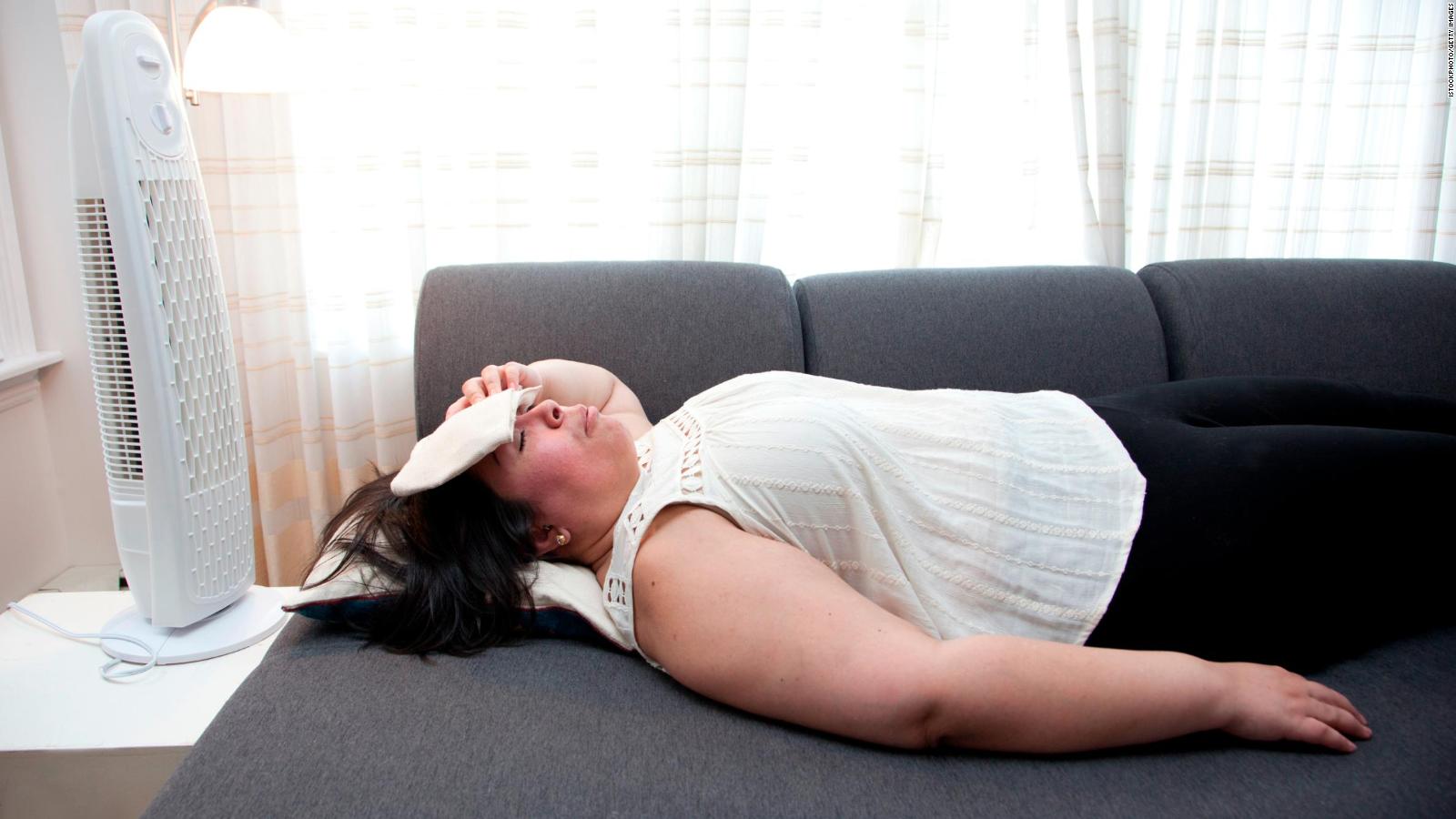Climate change is going to take away your sleep 0:53
(CNN)--
People around the world are likely to lose 50 to 58 hours of sleep a year by 2099 due to global warming, a new study reveals.
Researchers used wristbands with internal accelerometers to measure sleep duration and rhythm in more than 47,000 adults from 68 countries for an average of six months for a study published in the academic journal One Earth.
Adults should get seven to nine hours of sleep, according to the National Sleep Foundation.
According to the study, the probability of sleeping less than seven hours increased by 3.5% if nighttime minimum temperatures exceeded 77 °F or 25 °C, compared to the reference temperature of between 41 and 50 °F (5 at 10°C).
"3.5% sleep loss may initially seem like a small number, but it adds up," said Alex Agostini, a professor in the department of justice and society at the University of South Australia in Adelaide.
who did not participate in the study.
When adults don't get the recommended amount of sleep, they can have trouble concentrating, Agostini said.
Long-term effects can include an increased risk of health problems such as cardiovascular and gastrointestinal disease, she said.
"Many of us have gone all night without sleeping, at some point in our lives. Now imagine doing it eight times, how would you feel?"
Agostini said.
advertising
A single night in temperatures above 86 °F or 30 °C cuts sleep time by about a quarter of an hour per person, said study lead author Kelton Minor, a doctoral candidate at the Center for Social Data Sciences at University of Copenhagen.
However, the elderly lost twice as much sleep for each degree of warming compared to young or middle-aged adults.
What's more, sleep loss was three times higher in the elderly in lower-income areas compared to those in higher-income areas, she said.
Women were also affected by rising temperatures 25% more than men, Minor added.
Little chance of adapting to the heat
The researchers also found evidence that people living in warmer climates lose more hours of sleep per degree than those living in colder climates, and that people adjust better in colder climates than in warmer ones. warm.
This higher sleep loss in warmer places suggests that people can't easily adapt to higher temperatures, Minor said.
Sleep Apnea and Snoring: 8 Warning Signs to Watch Out For
As temperatures continue to rise due to global warming, Minor projected that sleep loss will increase at a faster rate in regions that already face hot climates compared to those that don't.
People didn't seem to adapt to the heat either: According to Minor, the amount of sleep people got in the first month of the summer, when people were less familiar with the heat, and the last month of the summer, when people were more familiar with it , showed that they lost almost the same amount of sleep.
This similarity in sleep loss indicated that people can't adjust to higher temperatures over time, he said.
Also, the results showed that people didn't seem to catch up on lost sleep during a warm night in the two weeks after a temperature spike, Minor said.
The cost of higher temperatures
Humans spend about a third of their lives sleeping, but an increasing number of people don't get enough sleep, Minor said.
One-third of adults in the United States say they routinely sleep less than the recommended seven to nine hours, according to the Centers for Disease Control and Prevention (CDC).
"Many of us no longer get enough sleep, and the contribution of global warming-related sleep problems could have real consequences for our health and well-being," Agostini said by email.
When humans begin to sleep, their core body temperature drops, he explained.
When the surrounding temperature is warmer, it's harder to cool down, which can affect your ability to fall asleep, she explained.
Air conditioning can help people adjust to warmer temperatures, but it's not a reliable long-term solution, Agostini said.
People living in low-income countries have less access to air conditioning, which could widen the inequality gap, Minor said.
In addition, air conditioners release greenhouse gas emissions, which naturally increase global warming, Agostini said.
"The biggest and best solution to the problem is the use of environmentally friendly building planning and the implementation of other changes to improve the global warming issue," he said.
Sleep quality


/cloudfront-eu-central-1.images.arcpublishing.com/prisa/7GBYEZIDTZEK7NLSBDHWXQXBFY.jpg)
/cloudfront-eu-central-1.images.arcpublishing.com/prisa/C4BOJCQJZFGPJORE3TOF2IPXME.jpg)





/cloudfront-eu-central-1.images.arcpublishing.com/prisa/KMEYMJKESBAZBE4MRBAM4TGHIQ.jpg)


